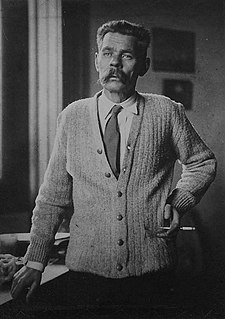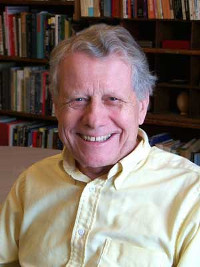A Quote by Aleister Crowley
Further, an excess of legislation defeats its own ends. It makes the whole population criminals, and turns them all into police and police spies. The moral health of such a people is ruined for ever; only revolution can save it.
Related Quotes
It is quiet here and restful and the air is delicious. There are gardens everywhere and police spies lie in the bushes. There are nightingales in every garden, but police spies only in mine, I think. They sit under my windows in the darkness of the night and try to get a glimpse of how I spread sedition in Russia.
The notion that Americans can be protected from "terror" by giving up the Bill of Rights is absurd. Democrats are complicit in this absurd notion. Many were intimidated into voting for police state legislation, because they lacked the intestinal fortitude to call police state legislation by its own name. The legislation that has been passed during the Bush regime is far more dangerous to Americans than Muslim terrorists.
At one time my only wish was to be a police official. It seemed to me to be an occupation for my sleepless intriguing mind. I had the idea that there, among criminals, were people to fight: clever, vigorous, crafty fellows. Later I realized that it was good that I did not become one, for most police cases involve misery and wretchedness-not crimes and scandals.
From that point on, the extraordinary system of spies and informers which has played an important part in the political work of the French state into our own time took shape. (Sartine, who became lieutenant general de police in 1759, is supposed to have said to Louis XV, "Sire, when three people are chatting in the street one of them is surely my man.") Eighteenth-century police manuals like those of Colquhoun in England or Lemaire in France are no less than general treatises on the government's full repertoire of domestic regulation, coercion, and surveillance.
Many White people are not sensitive to the kind of abuse that African Americans, especially younger African Americans, receive at the hands of police officers and police departments. I think for most Whites their experience with the police has been good or neutral because they don't interact with the police as much as those in the Black community.



































